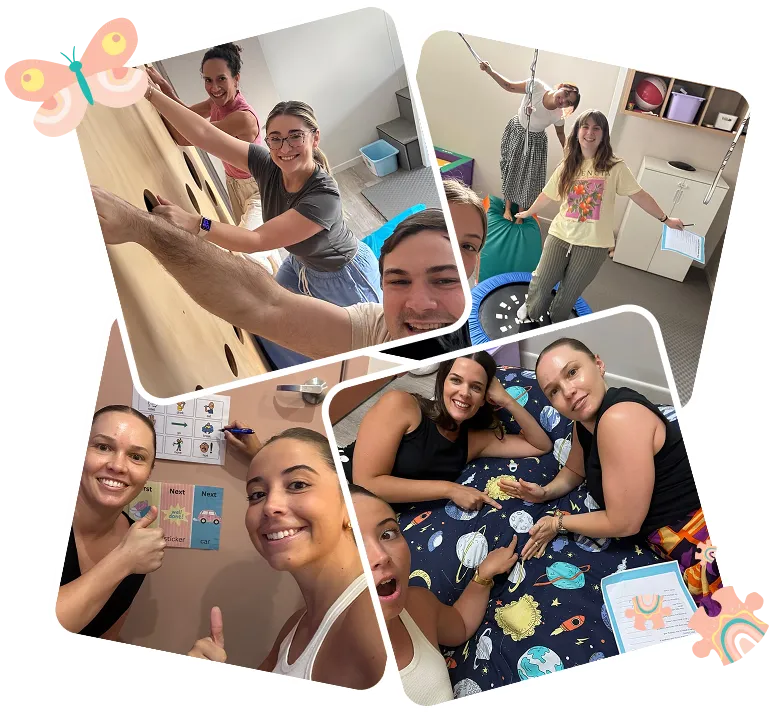
You’ve just been to the Paediatrician’s office. They have asked you to answer a whole range of questions, taken on board feedback from the school, listened to your concerns. You have most likely waited some months if not over a year for this opportunity. This may have come after some years of feeling something was just ‘different’ about your child compared to your niece, your friend’s children or elder children. Maybe you are a first-time parent and just sensed there was more to explore about your child. Perhaps you felt that your child was developing fairly typically and you noticed something had shifted and they just weren’t talking or smiling as much.
Your Paediatrician has made the diagnosis after careful consideration of your child’s strengths and abilities alongside their support needs. You may have had other testing and other assessments to get you to this point.
So where to from here?
You are aware that there is help available along with funding but how and where do you start?
Here are our five top tips on how to make a start on your journey:
1. Remember you are always the expert in your child
Do not let anyone ever suggest or make you feel otherwise. You were there when your child took their first breath, you soothed them, played with them and delighted in them as they started to explore the world. This history with your child and your strong relationship with them makes you the most pivotal and most important person in supporting their development.
You will know straight away if your child isn’t bonding with a therapist or responding to a particular therapy approach. You can tell when your child doesn’t feel supported by their teacher or whether the school are providing the support that your child actually needs. You are aware of when your child has made a true and genuine connection with another child.
Work with people who seek to understand first before making assumptions. Value the people who get curious with you about your child’s communication, interests, strengths and the way they show up in the world.
2. Do your own research
There is so much out there to read. It is endless – there are bookstores loaded with books, there are forums and blogs. There are research studies and articles online. There are endless resources and organisations, and everyone has different opinions, ideas, and viewpoints.
Don’t be afraid to read information and question it. There are interventions and approaches that appear to have a lot of ‘research’ behind them. There are classes and therapies for everything and these are available in many different formats including online, telehealth, face to face, overseas, one to one, in groups and the list goes on and on.
Read what people who are Neurodivergent themselves are saying. Listen to their voices. They were once the same age as your child and their opinions and experiences matter.
3. Engage with other parents and likeminded individuals
Find other parents who have walked in the same footsteps. Lean into conversations with parents who have children who are neurodiverse.
Join forums and put it out there that you’d like to go for a coffee with other parents in the same situation. Link up with Carers Gateway if you are in Queensland, or the Carers’ organisation for your state.
Join Facebook groups even just to observe and read what others post and what questions get asked. Consider parent coaching, parent training and different books that talk about Neurodiversity, supportive parenting approaches and working with a therapist who can offer insight into what this looks like.
4. Find a team that you and your child connect with
Along your child’s journey you will have numerous ‘team members’ that come in and out of your child’s life. You have such power in overseeing who these individuals are. Essentially it comes down to a gut feeling a lot of the time of who ‘fits’ into you and your child’s team. It is also normal for this to take a few goes to get it right. You are going to need to share a lot with this person, so it is vital that you feel safe, heard and supported by them.
Don’t feel nervous to step away from a service or a therapist who doesn’t feel like a good fit. It can be hard to send that email or make the phone call to let them know but it’s only a moment of discomfort to take a necessary step to getting the support that feels authentic and effective for you and your child.
5. Ask lots of questions
Once you do start to access therapy services make sure you ask lots of questions (even if you think they are silly or unnecessary). Do the same with your child’s school.
Ask questions about what their approach is and how they plan to support you and your child. Ask to have time one on one with your therapist so you can raise all the concerns you have without your little one hearing you.
Ask your child’s school for a meeting with their Learning Support department and your child’s teacher. Find out what supports your little one can tap into and advocate for these supports.
We totally understand how daunting it can all feel when you are entering unchartered territory so hoping these tips are helpful for you and your child.
